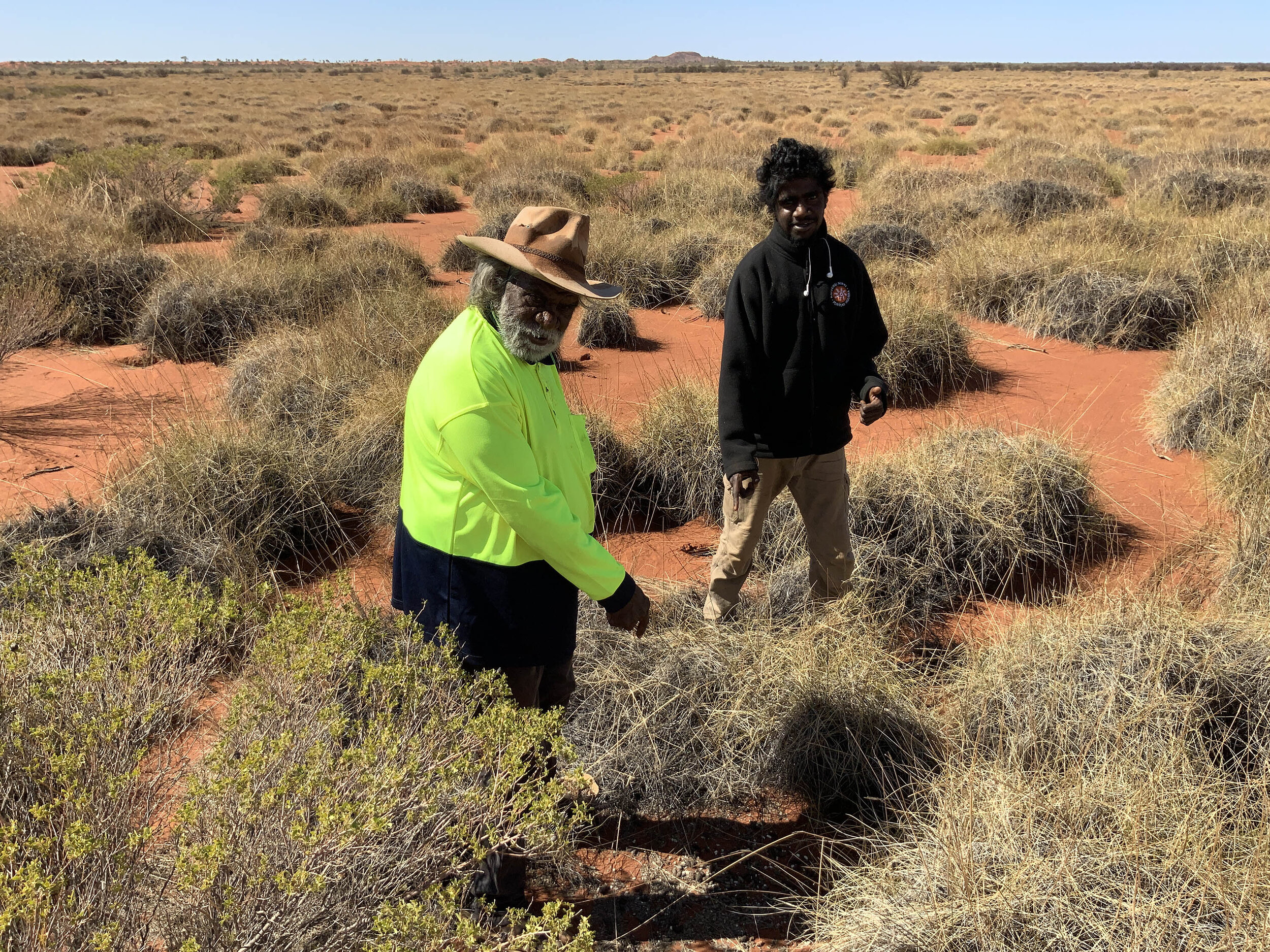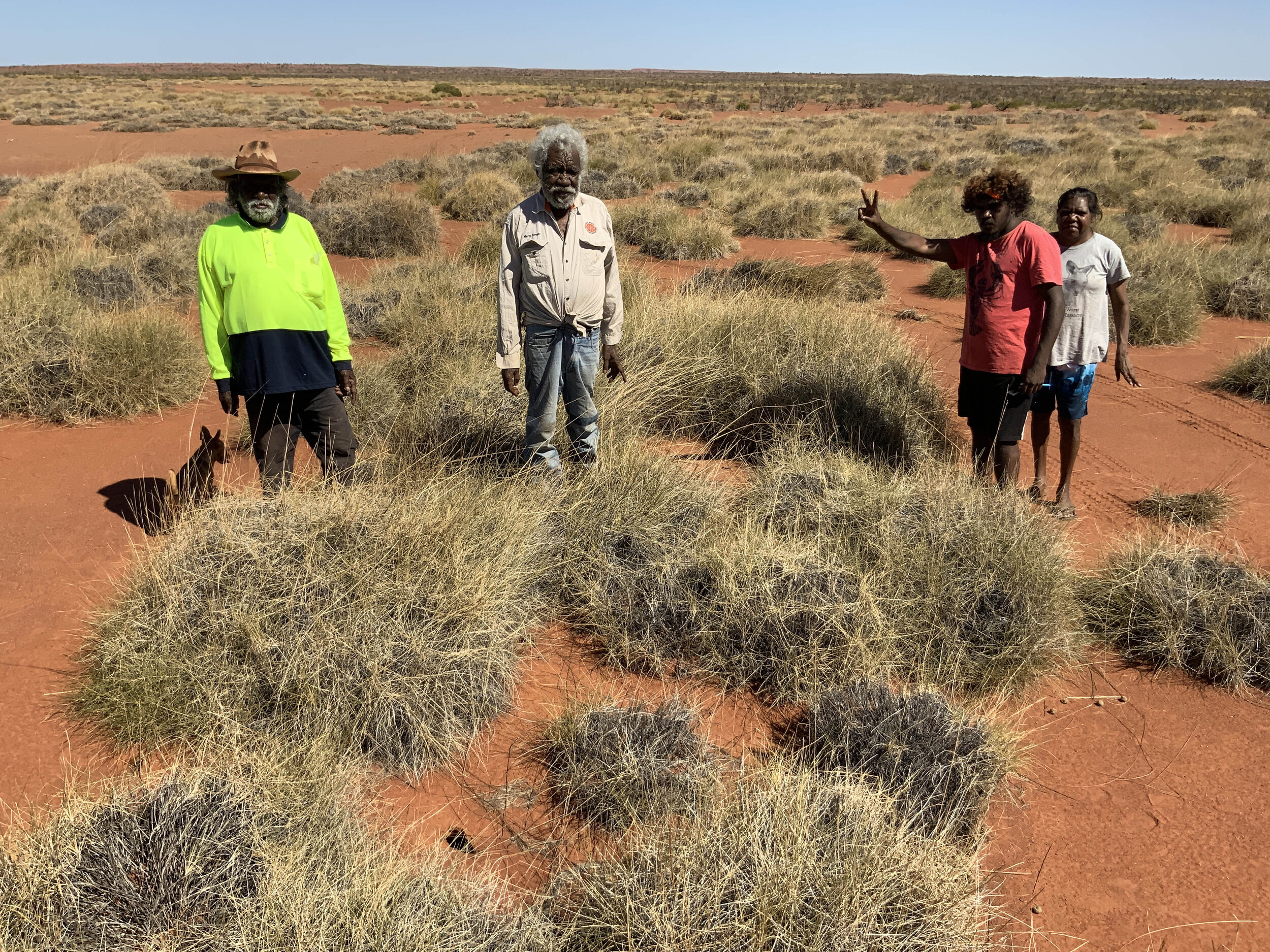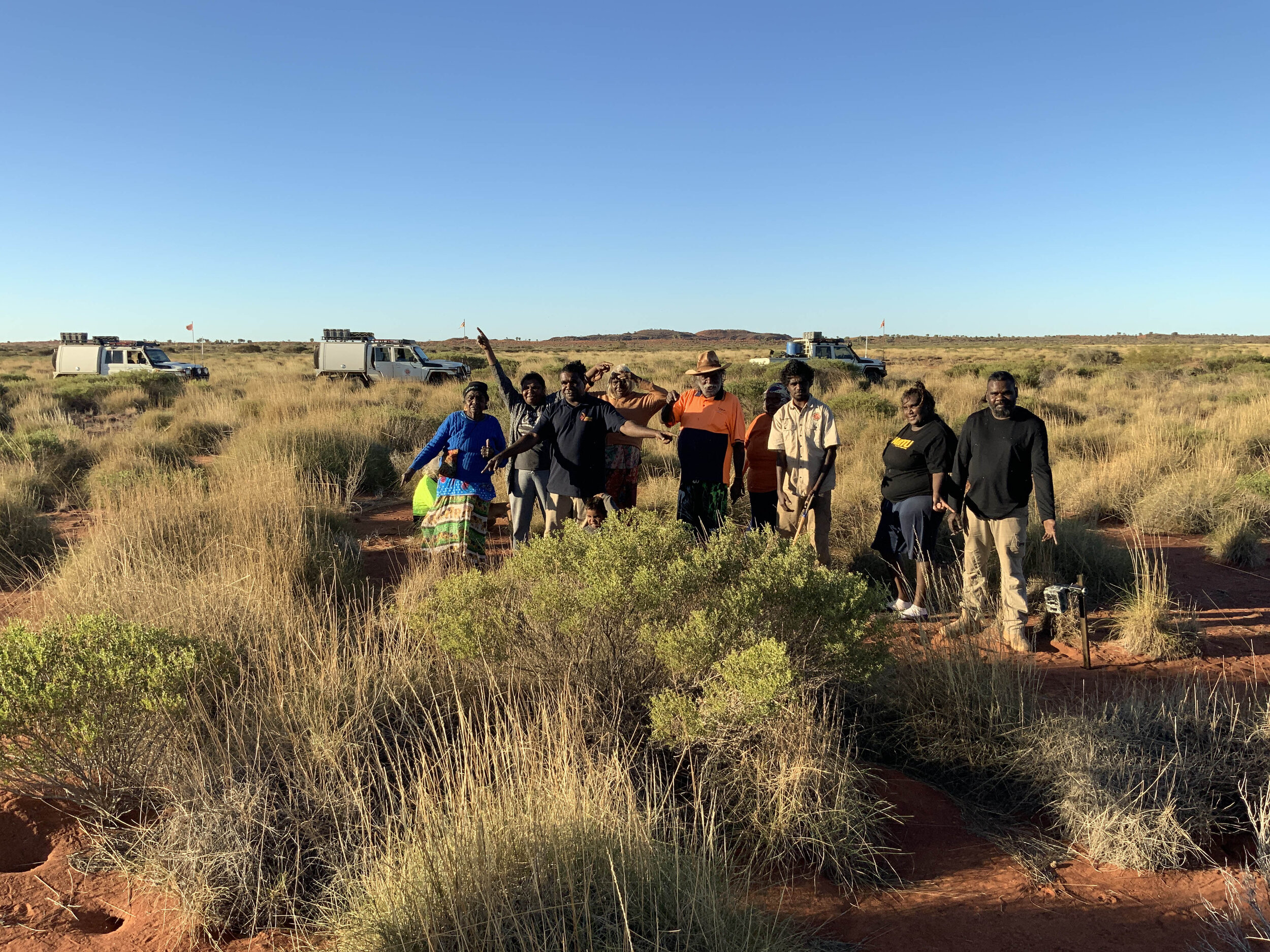Martu protect culturally significant species
Punmu and Parnngurr rangers are managing populations of one of Australia’s threatened reptile species called mulyamiji (Great Desert Skink). For Martu of the Western desert, mulyamiji is culturally significant, both as an important jukurrpa (Dreamtime) species and a food resource.
Punmu is currently on the western edge of the currently known distribution for Great Desert Skinks. In 2017, with the assistance from Rachel Paltridge (Desert Wildlife Services, Threatened Species Ecologist) this team established an ongoing monitoring program to determine whether the surviving mulyamiji populations are increasing in response to management, stable or continue to decline. Today, the Punmu rangers are still finding active burrows on their country!
It was in June 2020, after a successful two-night camping trip on-country (near Parnngurr community), that 15 new active burrows were discovered near an important Martu place named ‘Warntili’.
Now, the Parnngurr ranger team — which includes a very motivated group of Elders and younger Martu men and women — have worked hard to keep this species safe. Elders pass on their expert tracking skills teaching younger Martu how to ‘read country’ for other signs of mulyamiji (such as looking for burrows and latrines).
These skills and knowledge are held within the ranger program to ensure the mulyamiji remain protected on Martu country. Fire management is critical and used to protect mulyamiji burrows; planned burns reduce the risk of skink burrows from getting burnt by wildfire, as they are particularly vulnerable to cat predation when vegetation cover is removed from their burrow system.
The species range has significantly contracted during the past century and localised extinctions have continued to occur within the current range during the past two decades. All known populations are small and the current distribution of mulyamiji is almost entirely on Aboriginal land.
KJ works together with other Indigenous ranger groups and specialists across the desert to develop ‘best practices’ to look after mulyamiji. This assists KJ staff with developing individual ranger team management plans which includes mapping and annual burrow occupancy monitoring to determine persistence of skinks in relation to fire, predation and the possibility of Martu hunting.
Punmu over the years has developed a strong relationship with the Kiwirrkurra ranger team, as both groups look after Great Desert Skinks and in 2021 are planning for another ‘catch up’ in the desert in Punmu as part of the annual monitoring for mulyamiji.



